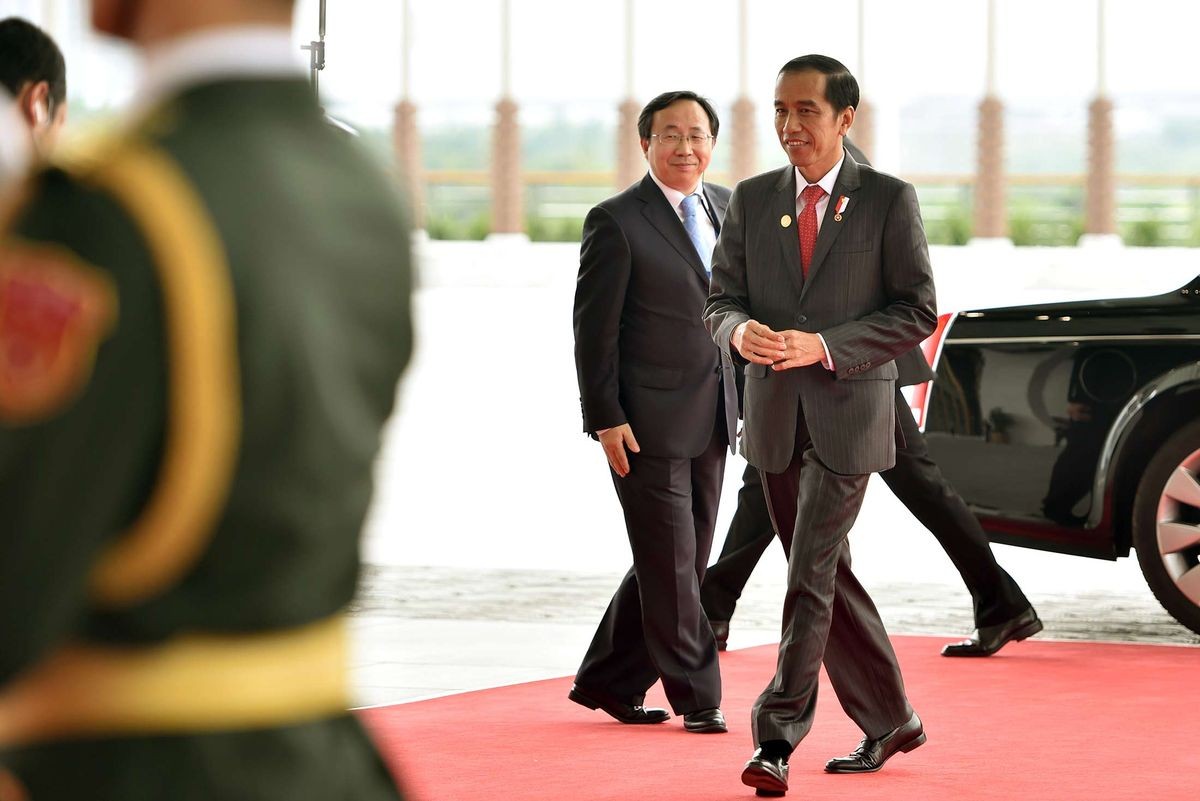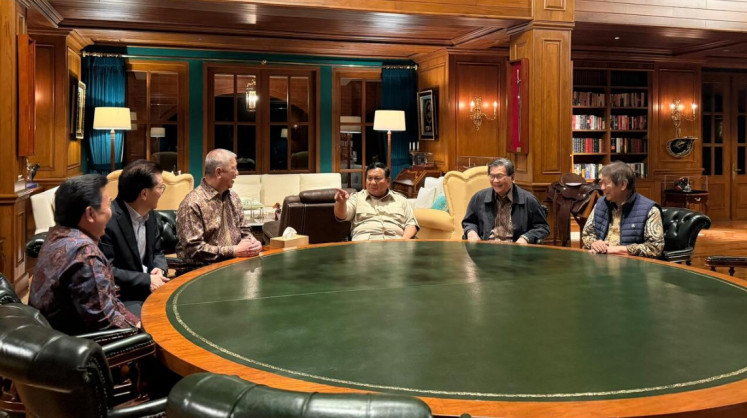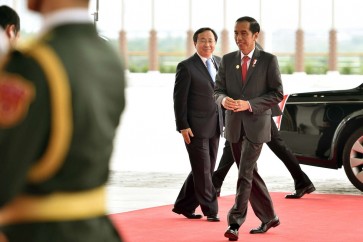Popular Reads
Top Results
Can't find what you're looking for?
View all search resultsPopular Reads
Top Results
Can't find what you're looking for?
View all search resultsThe importance of One Belt One Road for Indonesia
The One Belt One Road (OBOR) is widely seen as China’s strategy to boost its global leadership in promoting an open world economy through enhancing connectivity.
Change text size
Gift Premium Articles
to Anyone
P
resident Joko “Jokowi” Widodo was among 29 heads of state and government attending the Belt and Road Forum in Beijing, China, which was held on May 14 and 15.
The One Belt One Road (OBOR) is widely seen as China’s strategy to boost its global leadership in promoting an open world economy through enhancing connectivity.
The OBOR initiative covers 65 countries on three continents, representing 60 percent of the world population and about onethird of global gross domestic product (GDP).
During the forum, Jokowi and Chinese President Xi Jinping had a bilateral meeting and signed three documents. The first was related to an action plan for the implementation of a comprehensive strategic partnership for 2017 to 2022.
The second was related to a Rp 150 billion (US$11.25 million) grant for financing a site study on infrastructure development. The third one was related to the financing agreement of the Jakarta-Bandung high-speed railway project.
How important is OBOR from Indonesia’s perspective? One may argue that China’s OBOR has both geo-economic and geostrategic objectives.
However, Indonesia mainly sees OBOR as an economic opportunity. Clearly, Jokowi sees this forum as an opportunity to seek the needed investment for infrastructure development in the country.


















